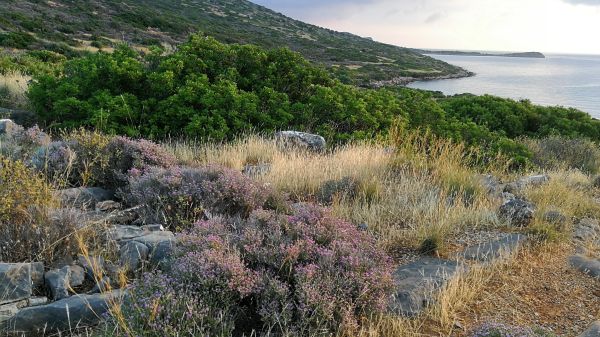Coming Home in Nature and Culture

Coming Home in Nature and Culture
Josef Kittinger
Some places have special qualities, which give us a feeling of coming home, although you just arrived and you are "only" a guest there. Elounda Island Villas in Crete is one of those places for me. What may be the secret of this?
Swimming along the beach, sitting in the shadow of the houses and trees, or in the peaceful cafe, some possible answers occurred to me. I feel at least three invitations here.
See the beauty!

Everything is beautiful in its own way. It's not a romantic beauty, but an authentic one. It includes roughness, shadows, efforts and lost dreams. "Lost and found" is the name of a helpful place on railway stations. Here I can find me and my vision of life again. It starts with being aware, with seeing what is here already.
Be aware...
Be aware of everything what you are seeing and feeling in this moment, outside and inside you. And intuitively you are drawn into a space of silence and peace. You only have to answer. Yes! I want. We are free, we have a choice to decide. We are transformed in what we are looking at. Don't worry, if experiences of fear, of wounding are rising. That's normal in the process of healing. That belongs to life. Everything that is seen with benevolence can become whole and a vivid and dynamic part of our life. And: You need not to be mindful in all moments. Just in the present one ...
Be proud to be European!
Old Greek mythology says that Europe got its name from the beautiful Phoenician princess, with whom Zeus fell in love. In a tricky way - metamorphosed into a lovely white bull - he brought her from Sidon, today Palestine, to Crete. Myths have meanings and often historical correspondences. Crete may have been the bridge between orient and occident ... And for sure it is one of the cradles of European culture. Just remember the many words with Greek origin: eros, aesthetics, utopia, biography, organic, theater, music, democracy, dialog, therapy, chaos … as Lida shows on a T-shirt she designed.
Being here in the southern edge of Europe, I am happy and proud to be a European citizen. And Greece is a pearl, a gift to Europe.
Josef Kittinger, Austria
June 2017
www.tagederutopie.org
A side story: In 2005 our group of KY leaders traveled to Bregenz to experience envrionmental sustainability and what the western Austrians were doing in that regard. It was a direct result of the spadework of Bertram Meudburger, a friend in the Office of Future Questions, an Austrian government office, who made this introduction and experience possible. Indeed what we observed was a commitment to change to sustain our earth.
At Sankt Arbogast, a Catholic Retreat Center, we had the opportunity to take a brief tour of the facility that is a quiet, nature-connected, place built with local wood and filled with artwork, photography, paintings, and sculpture.
We had a delicious luncheon meal and with it wonderful conversation. Josef Kittinger asked the group whether they had heard of the "Slow Eating Society." He said Sankt Arbogast subscribed to that way of thinking. Even though our group was erudite and successful, nary a one of us had heard of this concept or at least experienced this way of living.
Under the leadership of Josef he has provided opportunities to learn and grow in a nurturing environment, connecting to nature as a basis of connecting to oneself.
Coming away from that opportunity, one could not help but be transformed, though our visit was much too brief.
Recently I had read a number of FB posts from Josef and I asked him if he would share with our Connecting to Nature Blog. He graciously agreed though he told me he had retired from Sankt Arbogast. Thanks to him for his willingness to share with us, another example of how his efforts to transform others goes on. (Joe Baust)

Comments
I think this is beautifully written. Teaching my students to live in the moment and understand that "sense of place" or belonging is so important to teaching them to care for our environment. Trying to teach them to as you say, "be aware," is very difficult amid the distractions our culture creates. So few of my students have any sense of awareness outside their phones, and the only way to get them to see it is to make them get out and experience it. Unfortunately, field trips are difficult to organize and fund. It is frustrating to have so many obstacles to get youth to experience their immediate surroundings, much less the other beauty in our vicinity.